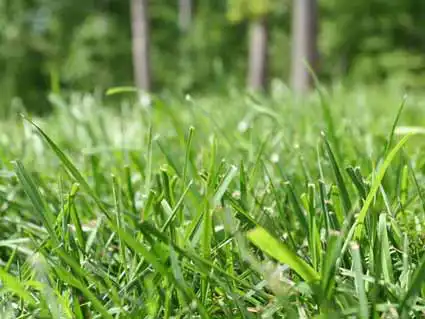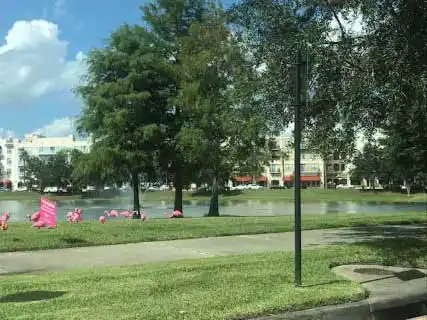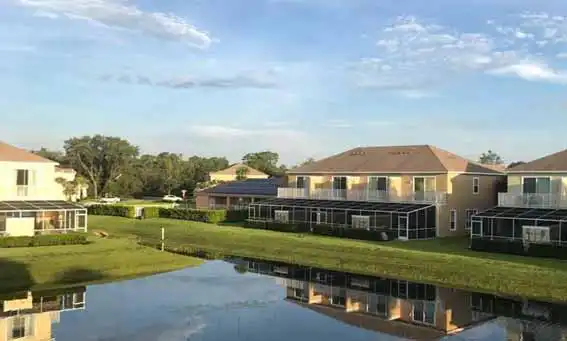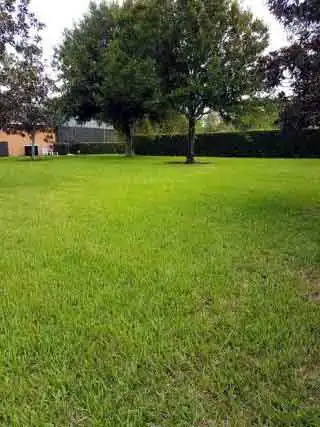If you want to ask for a free quotation, please click here.
Please, note that this option is only available for Brazilian customers for purchases and deliver in Brazilian territory.
For more information, you may call us at the numbers below:
+ 55 (15) 3273-2644 (Itapetininga)
+ 55 (11) 3733-5989 (São Paulo)
+ 55 (15) 99630-5347 (whatsapp)

Bermuda Grass Cynodondactylon
The Bermuda Grass is originally from the Middle East. However, as the name suggests, it is thought that this grass has been introduced to the Americas from Africa in the 17th century through the Bermuda Islands in the Caribbean where it is a very invasive species.
The Bermuda Grass is very resistant to the heat and to the drought, to the big variation of pH of the soil, to the high salinity of water in soil as well as to the intense trampling. This grass grows pretty well in shallow as well as rocky soils. Since it forms a very dense carpet grass, it is widely used for sports fields, especially golf courts, soccer, football and horse farms. In addition to the dense carpet formation, due to its fast growth, the Bermuda grass is very resistant to weed infestation.

Characteristics
The Bermuda Grass presents small, narrow and pointy leaves, with a vivid green color, reaching about 5 cm (1-1/2”).
The Bermuda Grass tolerates well the intense heat, drought and intense trampling. Therefore, it is widely used in temperate climate areas, and especially for sports grounds. In the United States, there is a variant of Bermuda Grass known as Tifway-419. This grass is mainly used for American football fields and golf courts at the desert areas of the Southeast and Southern Highlands, such as Arizona and Texas.

Where can I plant Bermuda Grass?
The Bermuda grass is widely planted in regions of hot climate and is perfect for:
- Sports grounds: Soccer, Footbal, Golf, Polo, Cricket, Horse farms
- Residential gardens
- Closed neighborhoods
- Commercial gardens
- Parks
- Edges and surroundings of swimming pools
- Recreational areas and playgrounds
- Coastal regions where there are higher concentration of salt in the soil
When can I plant the Bermuda Grass?
In Brazil, the Bermuda Grass can be planted at any time of the year, since it is very resistant to the intense heat of the summer and the dry season of the winter.
How can I plant the Bermuda Grass?
Before receiving the grass: Prepare the site where the grass will be planted removing all kinds of weeds, stones, dirt, and debris. Try to prepare the soil more uniformly as possible without unevenness and small bumps. Despite Bermuda Grass grow in shallow and rocky soils, it is recommended to plant the grass in fertile soil in order for the grass to grow healthily. In doubt, a consultation of an expert in soils or an agricultural engineer is recommended to check and analyze the soil before planting
The transportation of the Bermuda Grass: Normally, the Bermuda Grass is transported as carpet tiles rolls of 40 cm x 125 cm (16” x 49”). In this way, besides making it easier to plant, it also avoids damages to the grass that can be transported at long distances.
Receiving the Bermuda grass: Once the grass is unloaded from the truck, it is recommended to plant the grass immediately. Place the grass carpet tiles side by side. The small pieces of left over or broken grass carpet tiles can be used to fill in the gaps between the grass tiles. All the planted area should be covered with earth after planting is completed.
Once planted, the Bermuda Grass should be watered immediately daily and heavily in the first 30 days after planting is completed.
Once the grass has been well settled and adapted to the ground: the Bermuda Grass can be watered weekly, preferentially using an automatic irrigation system to avoid excessive loss of water and optimize the homogeneous irrigation of the lawn.
Grass trimming: the Bermuda Grass can be trimmed when the grass reaches 2 to 3 cm (0.8” to 1.2”) of height. If you wish, you may trim the grass when it reaches 4 to 5 cm (1.6” to 2.0”) of height.
Fertilization: Despite the Bermuda Grass being very resistant to several harsh conditions, it is recommended to fertilize the Bermuda Grass at least every 6 months in order to have a healthy and beautiful lawn.

Recommended care
The Bermuda Grass must be planted in plain sunshine areas, in fertile soils, with biannual fertilization and regular watering. However Bermuda Grass resist very well to the drought, and therefore, it can survive well with irregular watering.
The Bermuda Grass must be trimmed when it reaches 2 to 3 cm (0.8”to 1.2”). It is recommended to trim the grass during summer and spring, since its growth diminish during the fall and may get dormant during winter.
Additional information on care, you may find clicking here.
Weeds and Bermuda Grass
The Bermuda Grass is very resistant to weeds since it forms a very dense carpet. It also tolerates well the infestation to insects. If the Bermuda grass suffers some damage due to intense trampling, weed or insect infestation, it recovers well quickly.
In case it is needed, the Bermuda Grass tolerate well the application of selective herbicides in case of vast weed infestation.
For more information, you may find it by clicking here.

Advantages
- It settle easily forming a dense lawn.
- It is very resistant to trampling. Therefore, it is widely used for sports grouds such as soccer, football, and golf, as well as playgrounds and area of intense circulation of people such as parks.
- It is resistant to weeds and insects
- It tolerates high temperatures and drought.
- It adapts well to various types of soil, with big variation of the pH: from acid, neutral and basic. But it depends on the region when the grass is planted, and therefore, the consultation to a specialist of soil or an agronomist engineer is always recommended.
- It requires less watering compared to other types of grass.
- It is very tolerant to salt, and therefore, the use of brackish or “heavy” water is still possible.
- It is ideal for coastal regions, for beach house gardens and closed neighborhood near the beach.
- It is the most resistant to shallow and rocky soils when compared to other type of grasses.
Disadvantages
- It is not recommended for shaded areas and very cold regions.
Format
The Bermuda Grass is cultivated in grass nurseries and is normally sold as grass carpet tiles (pallets), seedlings and rolls of 40 cm x 125 cm (16” x 49”).
-----------------------------------------------------------------------------
Our numbers for any additional queries:
+ 55 (15) 3273-2644 (Itapetininga)
+ 55 (11) 3733-5989 (São Paulo)
+ 55 (15) 99630-5347 (whatsapp)
-----------------------------------------------------------------------------
More articles about Bermuda grass and the other grasses, you find here in our website. Check it out!
Emerald Grass - Carpet Grass - Bahia Grass - Korean Velvetgrass - Saint Augustine Grass - Bermuda Grass - Grass for your garden - The origin of grass - Landscaping and gardening - Types of grasses - Grass sale - Emerald grass with the best price per m2 - How to fertilize the lawn - How to eliminate weeds from your lawn - How to plant grass - How to plant Bahia Grass - Maintenance tips for your Emerald Grass - How to plant Emerald Grass
A NATUREZA DE BEM COM A VIDA!

 (15) 3273-2644
(15) 3273-2644
 (11) 9 9009-1813
(11) 9 9009-1813
Hi, can you ship this grass to outside Brazil? I wanted to quote with you about 15,000 sq ft to the US. Dallas, Texas. Thank you.